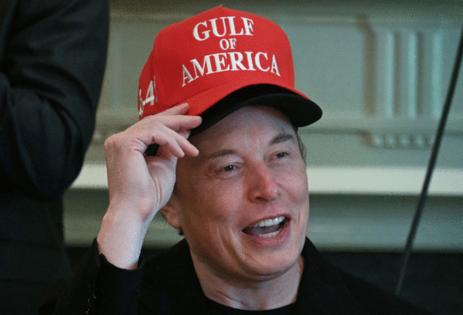COUNTERPOINT: DOGE's swift but not-so-terrible sword
Published in Op Eds
Critics swing between accusing the Elon Musk-led Department of Government Efficiency (DOGE) of overreach and declaring it a failure at cutting government.
Here are some reality checks:
DOGE-like efforts are not new. George H.W. Bush’s Council on Competitiveness was created to ease regulatory burdens. Led by Vice President Dan Quayle, it worked to slow or stop costly rules and made agencies take the economic effects more seriously. While some saw it as business-friendly, mirroring criticisms of DOGE today, it helped put regulatory costs on the map.
The scope of DOGE, like that of the executive branch, is inherently limited. Like most executive orders, the directive establishing DOGE states it “shall be implemented consistent with applicable law.” Flashy but temporary, DOGE is set to dissolve by July 4, 2026.
DOGE can’t abolish agencies without Congress, but the president can scale back operations and deflate executive branch entities.
For example, over at the Department of State, Secretary Marco Rubio has reportedly retooled USAID, the controversial agency tasked with administering civilian foreign aid and development assistance. Shuttering programs that lack explicit statutory authority and refocusing agencies on core missions is a legitimate use of executive power. While Article I vests the power of the purse in Congress, Article II grants the president limited discretion in how appropriated discretionary funds are prioritized and administered.
And let’s not forget that former President Joe Biden embedded DEI and climate policy throughout the federal government. Biden brought us “whole-of-government” regulatory crusades, unilateral (and unjustified) student loan forgiveness, and pandemic-era eviction moratoria — arguably more radical than DOGE.
Now, the Trump administration wants to change programs like DEI that are ostensibly non-regulatory and funded at the executive’s discretion.
The Trump administration and DOGE have also been criticized for workforce reductions. People may not recall that the Reagan administration slashed the bureaucracy by 100,000, as chronicled by Donald J. Devine, Reagan’s Office of Personnel Management director and author of “Reagan’s Terrible Swift Sword.”
Devine notes that under Article II, the president has broad authority to execute the law and manage the executive branch — including reorganizing and reducing the federal workforce. Trump’s E.O. 14210 introducing a 4-for-1 attrition model and E.O. 14170 prioritizing merit-based hiring together positions DOGE as a legitimate continuation of the Reagan tradition. Probationary employees and non-essential functions are subject to fewer protections and can be reduced for budgetary or organizational efficiency, so long as due process is respected.
Legal battles over Trump-era spending and regulatory authority will likely extend well beyond DOGE’s July 2026 expiration. However, the fact remains that DOGE represents a creative and successful use of executive power to shrink the state, claiming $165 billion in savings. While short of the $2 trillion Musk touted in October, the cuts helpfully strike at some of Washington’s most entrenched in-house lobbying and NGO tax-funded networks. It is hoped that the long-term consequence will prove even more significant than the dollar figure today.
Ironically, Trump’s own “swampy” ideas — like antitrust crusades, tariffs, a sovereign wealth fund, campus speech codes, and even a DOGE savings dividend — threaten to lay the groundwork for future progressive regulatory grabs, eclipsing DOGE’s deregulatory accomplishments. Viewed in that light, DOGE hasn’t gone nearly far enough.
____
ABOUT THE WRITER
Wayne Crews is the Fred L. Smith fellow in regulatory studies at the Competitive Enterprise Institute. He wrote this for InsideSources.com.
___
©2025 Tribune Content Agency, LLC































































Comments